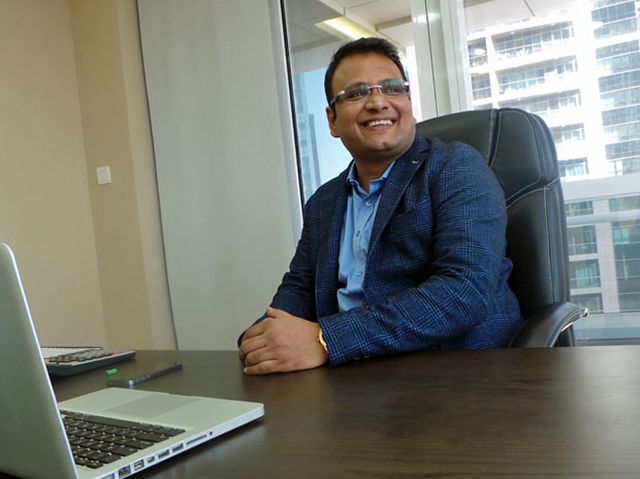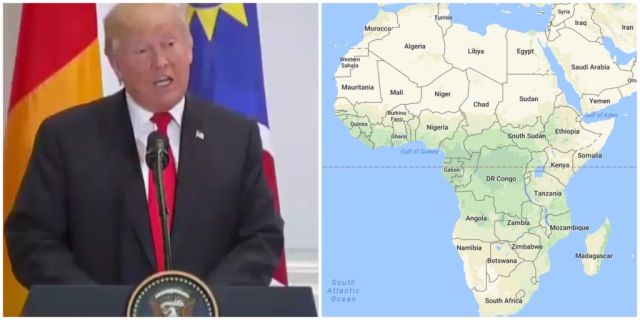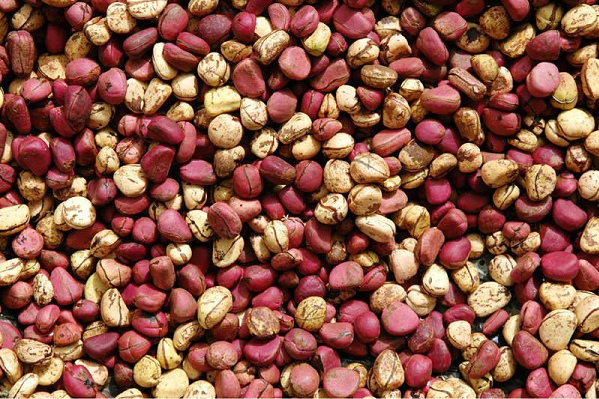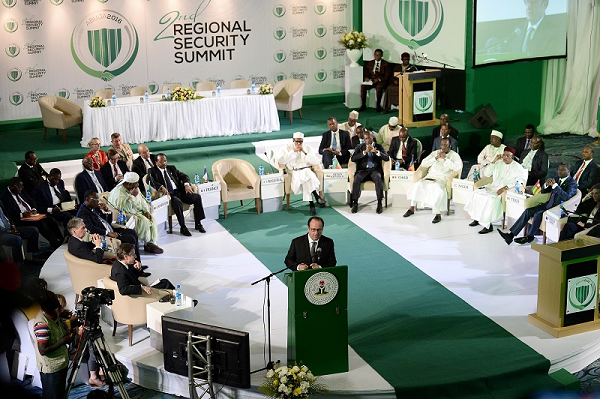
by admin | May 25, 2021 | Business, Commodity Market, Corporate, Corporate Buzz, Investing, Large Enterprise

Manish Mundra
By Francis Kokutse,
Accra : After making his name in India, Manish Mundra, the founder of Drishyam Films, is in the news in Nigeria for contributing to its economic growth in several ways: From petrochemicals to fertilisers.
Indorama Corporation, the conglomerate Mundra heads in Nigeria, aims to boost the agriculture sector in the West African nation with the opening of a $1.5 billion project to produce 1.5 million metric tonnes of urea fertiliser per annum so as to make the country self-sufficient in the product.
Mundra, who has worked with the Aditya Birla Group, Indian Rayon, Indo-Gulf and finally aluminium maker Hindalco, is an MBA with over 20 years of international management and mergers and acquisitions experience.
Mundra joined Indorama Group in 2002 in the corporate strategy department. Given his resourcefulness, he was transferred to Indorama Nigeria as a project manager. There, he supervised the acquisition of the state-owned Eleme Petrochemicals Company Ltd for $225 million. Mundra was appointed Deputy Managing Director of the company in 2007 and Managing Director in 2009.
He ran the Nigeria and Senegal operations, especially the expansion projects which are now concluded — Indorama Eleme Fertiliser and Chemicals Ltd (IEFCL), and ICS Senegal.
“I figured that Africa would see a growth in business and demand. Nigeria, the most populated and with the most hydrocarbon resources, was the perfect choice,” Mundra said.
Those in the oil industry said he must have his eyes on expanding Eleme as he took a personal interest long before he became the Managing Director.
“After the acquisition of Eleme Petrochemicals, the thought of establishing a fertiliser plant became a dream,” Mundra said.
“We saw that Nigeria needed a breakthrough in food production. It needs to stop its huge food imports which gulp about $5 billion annually,” Mundra said, adding: “Nigeria has abundant land resources; so there is no justification for this high import cost.”
He said about 75 per cent of Nigeria’s land can support agriculture, but only 49 per cent is in use. “It is for this reason that the company thought of building the fertiliser plant to facilitate abundant food production,” Mundra said.
Mundra does not seem to have finished with his plans for Nigeria. He said that in the coming decade, Indorama plans to make an impact on the Nigerian economy by creating jobs and consolidating its leadership in petrochemicals.
“In the next 10 years we would complete our Natural Gas Liquid plant, methanol plant and the second phase of our fertiliser plant,” he said.
“Our vision remains to build the largest petrochemicals and fertiliser hub in West Africa by 2020 with a total investment of $4.2 billion,” Mundra said.
(Francis Kokutse can be contacted at fkokutse@gmail.com)
—IANS

by admin | May 25, 2021 | World
 New York : US President Donald Trump has emphasized in a meeting with African leaders the “business potential” of their continent, noting that he knows that because “so many” of his friends go there “to get rich”.
New York : US President Donald Trump has emphasized in a meeting with African leaders the “business potential” of their continent, noting that he knows that because “so many” of his friends go there “to get rich”.
“Africa has tremendous business potential,” Trump said in his address on Wednesday during a working luncheon in New York with the leaders of Uganda, South Africa, Ivory Coast, Guinea, Namibia, Nigeria, Senegal, Ghana and Ethiopia, Efe news reported.
“I have so many friends going to your countries trying to get rich, I congratulate you. They are spending a lot of money. But it does, it has tremendous business potential,” he added.
Trump also created controversy on Twitter when he mistakenly pronounced Namibia as “Nambia” during his speech as he was emphasizing that country’s healthcare system, which he said is becoming more self-sufficient.
The President also announced that soon the US United Nations ambassador, Nikki Haley, will travel to Africa to discuss conflict resolution and prevention and, in particular, the violence in South Sudan and the Democratic Republic of the Congo.
Trump also emphasized Washington’s collaboration with African nations to fight terrorism, saying that he was “proud to work with you to eradicate terrorist safe havens, to cut off their finances and to discredit their depraved ideology, and a number of you have told me.”
After the luncheon, Trump also met with Jordan’s King Abdullah II, Palestinian President Mahmoud Abbas, British Prime Minister Theresa May and Egyptian leader Abdel Fatah el-Sisi.
—IANS

by admin | May 25, 2021 | Halal Industries
 RIYADH: Nigerian pilgrims have been asked not to bring kola nuts during the Haj this year.
RIYADH: Nigerian pilgrims have been asked not to bring kola nuts during the Haj this year.
Issuing the guidelines for Haj 2016, the Kingdom has notified Nigerian authorities to ban the carrying of kola nuts by pilgrims during the annual pilgrimage.
Confirming this, the National Haj Commission of Nigeria (NAHCON), in a statement issued on Tuesday said, “the commission received a circular from the Saudi authorities prohibiting the import of kola nuts into the Kingdom during this year’s Haj.”
“All those who intend to perform Haj are therefore advised to adhere strictly to the Saudi rules and regulations on prohibited items,” NAHCON said.
Moreover, the Nigerian Haj commission has also urged Muslim Pilgrim Welfare Boards (MPWB) and licensed tour operators to properly educate pilgrims to avoid penal actions on those found in violation of the instruction on smuggling kola nut. Violators will be punished in accordance with the laws of the Kingdom.
This caffeine-based edible seed, the kola nut, is usually known as “Goro” and “oji” and often used ceremonially by Nigerians to show a gesture of friendship and warmth; it is also used in the production of beverage and energy drinks.
Moreover, orientation and educative sessions are organized aimed at educating the pilgrims on all aspects of the Haj operations ranging from Haj rites, public transportation system, morals and manners during the Haj, new policies introduced for this year’s Haj by Saudi authorities, policies adopted by NAHCON, and Saudi rules and regulations to be followed during the stay in the Kingdom.
The commission made medical screening mandatory for pilgrims last year to qualify them to travel for their once-in-a-lifetime journey to the two holy cities of Makkah and Madinah.
Notably, about 70,000 Nigerian pilgrims perform Haj every year.
(Courtesy: http://www.arabnews.com)

by admin | May 25, 2021 | Muslim World

Regional Security Summit, Abuja, Nigeria (AFP Photo)
Abuja (IINA) – Regional and Western leaders, who gathered in Nigeria’s capital for talks on Boko Haram threat, concluded Saturday that the extremist group was forced to retreat from areas around Lake Chad, but urged the international community to do more financially and militarily to eliminate the group and help people who are suffering from worrisome humanitarian situation.
French President Francois Hollande said Boko Haram remains a threat despite impressive military gains against it. “The results (of the counter-insurgency) are impressive” and the rebels had been “diminished and forced to retreat”, he told a news conference in Abuja. But added: “This terrorist group nevertheless remains a threat.”
The summit came to an end with a statement stressing that defeating this insurgency is not based solely on a military solution, but also on a government’s developmental move to address the root reasons.
British Foreign Secretary Philip Hammond said earlier that “much more besides” a military strategy and a coordinated regional force was needed.
Countries hit by the violence had to win “the hearts and minds of those terrorized by Boko Haram” as the conflict was “a generational struggle against an evil that will destroy us if we do not destroy it,” he said. “We must sustain this fight until evil is defeated and good prevails,” he added.
The summit brought together leaders of eleven countries in the African continent, including countries bordering Nigeria (Benin, Cameroon, Chad and Niger), as well as EU Foreign Minister Federica Mogherini, and representatives from France, Britain and the United States.
The summit discussed ways to end Boko Haram’s insurgency which has killed an estimated 20,000 people and forced more than 2.6 million others to flee their homes since 2009. It also discussed the actual deployment of a much-delayed 8,500-member regional force from Nigeria and neighboring countries to combat the terrorist group.




